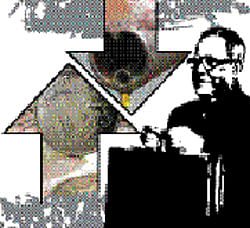Though the govt claims that food inflation is under control, slow growth of agriculture may lead to spiral in food prices again.

Expanding on the Economic Survey, finance minister Pranab Mukherjee while presenting the Union budget, once again blamed the international turmoil, namely cut in USA’s credit rating, sovereign crises in Europe and political uncertainty in the Gulf, for all the ills of Indian Economy. He made no mention of the mismanagement of the economy causing heavy fiscal deficit in the current year (2011-2012) reaching 5.9 per cent of GPD against only 4.6 per cent projected in the budget last year.
In absolute terms, this amounts, to increase from Rs 4.13 lakh crore as per budget estimates of 2011-12, to Rs 5.22 lakh crore in the revised estimates. Neither the finance minister was defensive about reducing the growth target to only 6.9 per cent against 9 per cent projected in his last budget. The failure is all round but more evident in agriculture and manufacturing. Now after presenting the budget, he is talking in terms of taking stern steps to bring the economy on track.
The finance minister fails to justify the decisions, which he claims to have caused heavy fiscal deficit and thus increase in the stock of money and thereby high rate of inflation, making life difficult for the ‘common man.’ Major problem facing the Indian economy is inflation. In fact, the RBI was forced to adopt tight money policy, raising interest rates. No doubt, rising fuel prices is also one major cause of increase in the cost of production in the industries, increase in interest cost too is increasing the problem of domestic industry manifold and causing hardships for the masses by resulting cost-push inflation.
High interest rates are also not good for demand driven growth, claimed to be on finance minister’s agenda. The country is facing shortfall in export demand due to recession and economic crisis in the developed world. Challenge of increase in demand is no less a challenge for the FM. No doubt, economy needs a big push by way of increase in domestic demand, both consumer and investment demand and none is possible without reducing the interest rates.
High interest rates are making the life difficult for middle class, whose EMIs are on the rise both on loans taken earlier and on new loans. Industry and infrastructure are also suffering due to high interest component. If we look back, period of low interest rates had coincided with high growth rate of the economy. However, the high interest rates, primarily due to hyperinflation, are pulling the growth down, especially the industrial growth, which have dipped to merely 0.4 per cent in the last two quarters.
The attempt of the finance minister to raise the revenue by way of additional taxation may further fuel inflation in the country and dampen the demand, worsening the situation. It may look heartening to note that the size of the Union budget is reaching Rs 15 lakh crore in 2012-13, but increased burden of taxes and high fiscal deficit are destined to make the life difficult for commoners.
Real problems
The need of the hour is to look into the real problems of the economy, namely neglect of agriculture, lack of investment in the economy, especially infrastructure (roads, railways, electricity, ports, irrigation etc) and mismanagement due to excessive dependence on foreign investment. Even more worrying is the mindset of the policy makers that foreign investment is the solution to all ills.
In fact, excessive dependence of foreign investment is causing major problems in the economy, especially when foreign capital flies back, causing turmoil in the share markets and weakening of the rupee. Not learning from these experiences, the finance minister has announced major concessions and schemes to encourage FIIs.
Pranab Mukherjee, if he had the interests of common people at heart, should have taken steps in the budget, to help contain prices and raise demand in the economy. We have to come out of the mindset that only foreign investment can do well for the country. We have problem of lack of infrastructure in the country. Road construction projects have slowed down and no significant capacity has been added in the electricity production. Speed of irrigation projects is also very slow. There is shortage of warehousing and cold storages.
However, some measures are suggested in the budget to encourage investment in infrastructure, but those are not sufficient. The finance minister has neither allocated sufficient funds for these projects, nor taken innovative initiatives to offer judicious tax-subsidy scheme to encourage private investment for these sectors. Encouragement to infrastructure investment brings two pronged benefits, as it adds to demand and it encourages development too.
Recently published results of a survey indicate the worrisome situation of malnutrition and hunger. Despite introduction of food security bill, the policy makers themselves are questioning its practicability. There is absolutely no attempt from the government to raise allocation for social services like health and education and for the last one decade, allocation for social services is at a low level of less than 10 per cent of the budget. Due to indifference of the government towards social services, process of human development is being disrupted. This may spoil our development dreams as well.
It is unfortunate that to keep fiscal deficit under control, plan and developmental expenditure are being curtailed to raise non-plan and unproductive expenditure.
Though the government claims that food inflation is under control, slow growth of agriculture may lead to spiral in food prices again. It is unfortunate that a sector, which employs nearly 60 per cent of the work force, contributes hardly 13.9 per cent of GDP. Like in the previous budgets, agriculture continues to be neglected, which clearly demonstrates the priorities of this government.